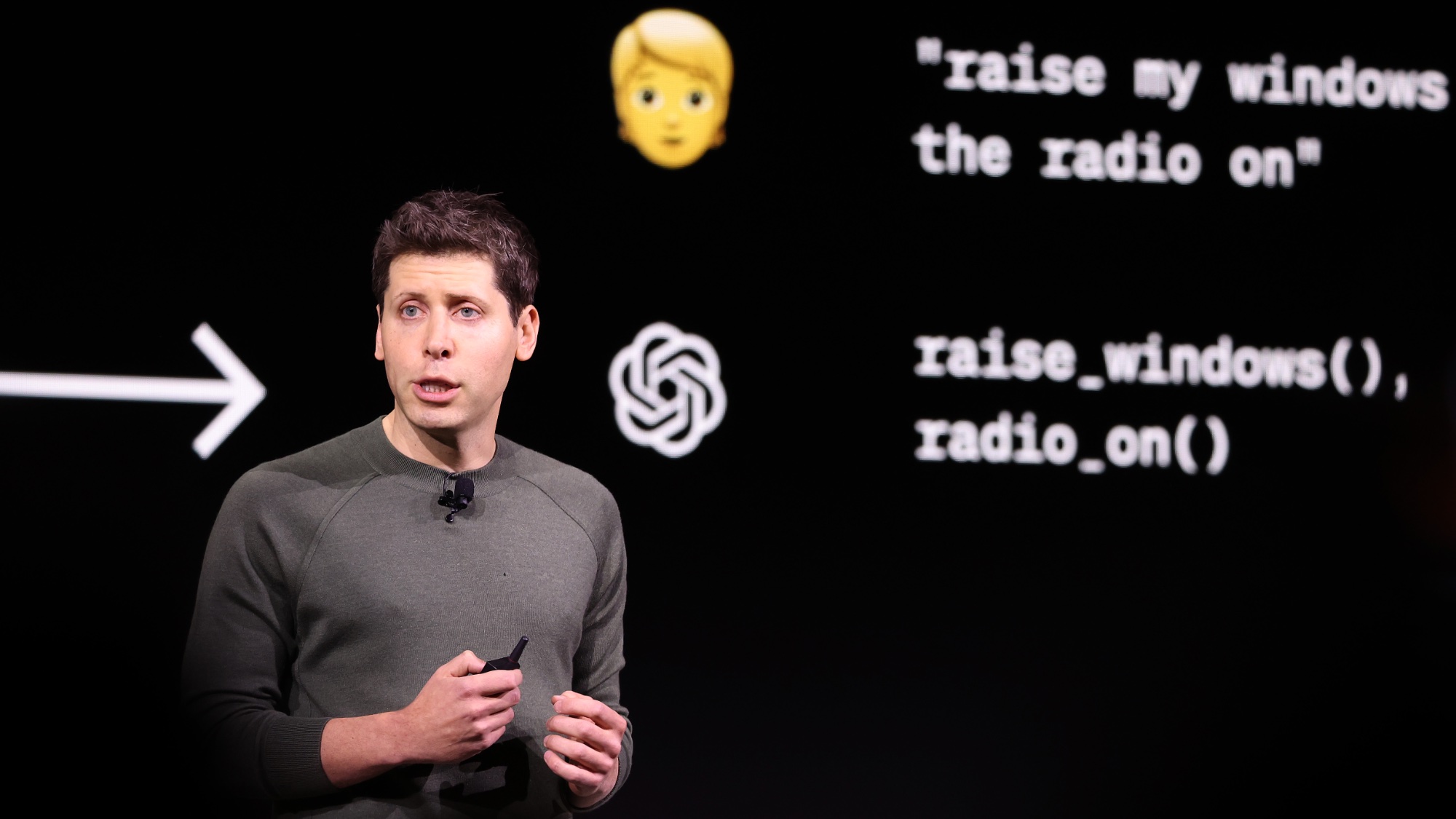
OpenAI has quickly become one of the most important AI companies, with models used by both Apple and Microsoft and its own productivity platform in ChatGPT with millions of monthly subscribers. But the company says its goal is still to build an AI superintelligence.
Using models like GPT-4o or even Claude 3.5 Sonnet, you’d be forgiven for thinking we’re getting close to reaching the initial goal of ‘Artificial General Intelligence’, but a new report on OpenAI’s efforts from Bloomberg suggests we’re still some way off creating AGI.
According to Bloomberg's unnamed sources, OpenAI has 5 steps to reach AGI and we're only just moving towards step two — the creation of "reasoners". These are models capable of performing problem-solving tasks as well as a human with a PhD and no access to a textbook.
OpenAI CTO Mira Murati has previously stated the next generation model, widely suspected to be called GPT-5, will be as intelligent as someone with a doctorate across a broad range of topics, but that we’re unlikely to see that next model until sometime next year.
What is AGI?
Fascinating chart re: how OpenAI sees the future. Seen this way, it does look like we are getting close to level #2, which is just the AGI layer: a model that can hit a baseline IQ of 100. Next task would be to make this AI-human (humAIn?) useful for society - it takes years of… pic.twitter.com/RCKwSg11qLJuly 12, 2024
Artificial General Intelligence (AGI) is a form of AI that can perform better than humans across every task. They have a broad, general understanding of the world and can do a degree of thinking and reasoning for themselves, allowing for real-world actions unsupervised.
This degree of intelligence is thought to be required for general-purpose use cases such as true driverless vehicles, autonomous robots that can work in a range of environments without prompting and AI models that can act as personal assistants and even colleagues.
All of the big AI labs including Anthropic, OpenAI and Google DeepMind have been creating AGI as their primary goal, and the products they are releasing are just steps on that path.
What are the 5 steps to AGI?
OpenAI hasn’t confirmed these are genuine but if true, and comments from Murati and others suggest it might be, the next step after reasoners is the creation of agents — AI models capable of performing a range of tasks across different domains without human input.
Level 1: Chatbots

The first of the five levels is for “Chatbots,” or “AI with conversational language”. This was achieved with GPT-3.5 in the first version of ChatGPT and was largely possible even before that, just not as effectively or with as much of a natural conversation.
Compare having a conversation with Siri or Alexa to that of ChatGPT or Gemini — it is night and day and this is because the latter is a conversational AI.
Large natively multimodal models like GPT-4o, Gemini Pro 1.5 or Claude Sonnet 3.5 are at the top end of this level and are the first of the ‘frontier’ grade AIs. They are capable of complex, multi-threaded conversations, have memory and can do some limited reasoning.
Level 2: Reasoners

Level 2 AIs are the reasoners. OpenAI says these are capable of “human-level problem solving,” across a broad range of areas, not specific to one or two tasks.
Many of the frontier models have human-level problem-solving on specific tasks, but none have achieved that on a general, broad level without very specific prompting and data input.
In the same way that GPT-3.5 was at the start of level 1, the start of level 2 could be achieved this year with the mid-tier models. OpenAI is expected to release GPT-4.5 (or something along those lines) by the end of the year and with it improvements in reasoning.
Meanwhile, Anthropic is expected to launch Claude Opus 3.5 in the coming months — this is the big brother to the impressive Claude 3.5 Sonnet and we’re still waiting on Google’s Gemini Ultra 1.5. This is the largest version of the Gemini model family.
Level 3: Agents

Level 3 is when the AI models begin to develop the ability to create content or perform actions without human input, or at least at the general direction of humans. Sam Altman, OpenAI CEO has previously hinted that GPT-5 might be an agent-based AI system.
There are a number of companies building agentic systems including Devin, the AI software engineer from Cognition, but these use existing models, clever prompting and set instructions rather than being something the AI can do natively on its own.
Level 4: Innovators

Level 4 is where the AI becomes more innovative and capable of "aiding in invention". This could be where AI adds to the sum of human knowledge rather than simply draws from what has already been created or shared.
If you ask an AI to create a new language, without giving it specific words it will give you a version of Esperanto today, in the future, it could build it from scratch.
OpenAI has a new partnership with the Los Alamos National Laboratory to develop AI-based bioscience research. This is more immediate in the fact they want to create safe ways to use AI in a lab setting, but will also likely help formulate plans for when AI can invent its own creations.
Level 5: Organizations

The final stage, and the point where AGI can be said to be reached is when an AI model is capable of running an entire organization on its own without human input.
To achieve this level of capability it needs to have all the abilities and skills of the previous stages plus broad intelligence. To run an organization it would need to be able to understand all the independent parts and how they work together.
Altman has previously said we could achieve AGI this decade. If he’s correct then instead of voting for an octogenarian in 2028 we might be bowing down to Skynet.







